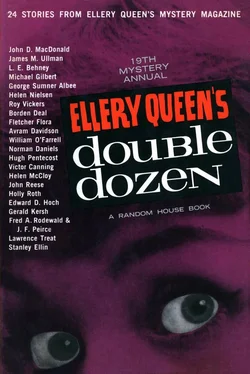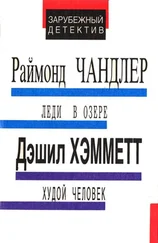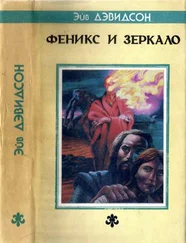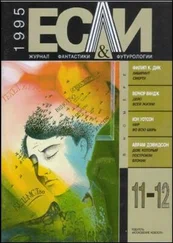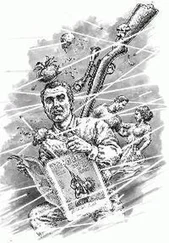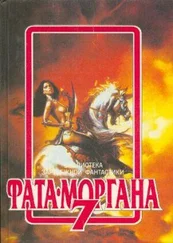Mitch tapped his hand on the steering wheel, and Jackson had sense enough to see there was nothing he could do.
“Okay,” the big guy mumbled. “Meet me in my office, we can talk there. I’ll be waiting inside.” And Jackson wheeled, marched back to his car, and took off. Mitch stayed behind, still at a fifty-foot distance.
It didn’t take much brain power to dope things out. Rogan was hiding in the office, and when Mitch stepped inside, they’d gun him down and take their chances. Because the way things stood, what did they have to lose?
Jackson kept going, nice and easy, and Mitch kept tagging along behind. He’d find Jub at the yard and pick him up. And what to do then was a tricky business. They couldn’t take the chance of going into that shack, they had no grounds for an arrest, and at the same time they couldn’t just kiss the thing off and go home.
If it wasn’t for that vacation of Mitch’s he’d have hung around and kept an eye on Jackson while Lieutenant Decker ordered an investigation. At the school, from neighbors. Check Mrs. Jackson, check the files. And after a while they’d know. Except that Mitch was planning to go up to the lake tomorrow, and how could you tell how long an investigation like that would take?
So he rolled along and tried to cook up an angle. And all he drew was a blank.
The road was deserted out here, a long stretch with the marsh on one side and the junk yard and its wrecked cars strung along the other. Jub’s police car — its insignia plainly marked — was parked on the macadam, and a couple of hundred feet away Jub was hard at work. He had a crowbar and was forcing open the trunk of a car — a Chevy.
What happened next took Mitch by surprise.
He was expecting Jackson to turn into the dirt road that led to the office-shack, but the guy went right on past, still going slow. Maybe he expected Mitch to stop and talk to Jub, but Mitch didn’t Mitch gave a blast on his horn, blinked his lights, then touched the siren button to attract Jub’s attention. When Jub turned around, Mitch waved for him to come over.
Jackson reacted to that siren as if he were wired for sound. His car seemed to jerk and leap forward, and he had a hundred-yard lead by the time Mitch realized it.
Mitch gave his car the gun, locked the siren button in the On position, and picked up his radio phone. He spoke crisply.
“Signal Nine-Nine,” he said. “Gray Mercury going west on Lincoln.” Then he slapped the phone back in its cradle and concentrated on driving. Signal Nine-Nine would bring out every radio car and every State Trooper on patrol, and Lincoln Avenue would be blocked off. But how soon?
Mitch, with the wail of the siren and the roar of air and the scream of tires in his ears, drove like a speed demon. Four miles to the turnpike. Jackson would cover it in three minutes maybe. Three minutes wasn’t long enough to mobilize and set up a road block, and Mitch had to hang on until help arrived.
Jackson, with that head-start he’d got by speeding up first, was now a couple of hundred yards ahead, and gaining. He swung out to the left abruptly, whizzed past a green car, then careened back to the right. Mitch saw a truck coming toward him, filling the opposite lane.
Mitch realized immediately that he was in a helpless position. Braking easy wouldn’t do any good, and braking hard would probably throw him into a skid — and he’d lose Jackson, besides. So the green car ahead of him or the truck coming toward him had to save his hide — but what the hell was the matter with them? They could see him, they could hear his siren. Didn’t they know they were supposed to pull over and give a cop room?
He gritted his teeth, thought of Amy, of Jackson, of the lake, of everything, of nothing. A green car and a truck, a couple of damn fools who’d lost their heads or didn’t know the rules. Mitch tensed; maybe he prayed and maybe he didn’t. He had no idea. And then the green car ahead of him started doing tricks, in slow motion.
The tail lights went red, the turning signal blinked, but for a left turn. The guy at the wheel was rattled and doing everything wrong. The left blinker went off and the right blinker came on. Mitch was practically on top of the car when the driver finally edged over to the right and slipped onto the shoulder of the road.
Mitch whizzed by, but he never knew how he made it. He felt the sweat pouring down into his eyes and he wanted to wipe it off. But his hands wouldn’t move, they were locked tight on the wheel. Up ahead Jackson was still gaining.
Mitch came out of it slow, and in a funny way he was able to relax a little, to think, to move his fingers again. He brushed off the sweat, decided the hell with this, he’d slow down, save his own life, and let the other boys close in on Jackson. The guy was trapped, wasn’t he?
Then Mitch saw the turnpike overpass ahead, saw Jackson’s brake lights flash on. Jackson’s car seemed to sway, flutter, almost go off the road as it careened into the approach to the turnpike.
Mitch applied his brakes gradually. He didn’t want to go shooting into turnpike traffic at eighty — or at sixty or forty, either. And once Jackson was out there, the State Troopers could worry. Mitch didn’t even have jurisdiction.
Above the dull roar of wind and tires Mitch heard the crash. He had a sick, empty feeling in the pit of his stomach, and he hoped nobody else was involved in the smash-up. He slowed up, and he was doing a modest thirty when he sighted the smoldering wreckage where Jackson had rammed almost head-on into a retaining wall...
Mitch got home around seven. Amy was giving the kids supper, and the hallway of the apartment was jammed with suitcases and bundles. Amy came flying into his arms as he opened the door.
“Mitchell,” she said, holding on tight, “I was getting worried. I couldn’t imagine what kept you so late.”
“We got that bank robber,” he said. “Jub found the loot in an old car in the junk yard, and the guy killed himself trying to get away.”
“Rogan?” she said.
Mitch shook his head. “Naah. That’s what we thought at first. But this bank teller had Rogan on the brain, like lots of other people did. I don’t want to blame the guy for making a mistake.”
“Of course not,” Amy said.
“Well, when somebody held up that bank, the teller thought he recognized Rogan. Only Rogan had nothing to do with it. We just got word they nabbed him out west.”
“Then who did it?”
“Guy named Jackson. We caught up with him this afternoon. He got rattled when he was followed and when he saw Jub searching cars for the money. He knew we were closing in, so he tried a getaway and ran into a stone wall.”
“Well, you can tell me all about it later. Do you know you forgot to write that note to Joey’s school? The one the PTA wants everybody to send, asking for better lunches. I promised you’d write. As a policeman, what you say carries weight.”
“Sure,” he said. “I’ll take care of it right away. Amy, does Joey look like me?”
She laughed at the question. “Sometimes,” she said. “Some people think so and others don’t. Why?”
“Nothing,” he said. “I better go write that note. Only... look, Amy, what’s the name of the school? I mean, what’s the number?”
Stanley Ellin
The Crime of Ezechiele Coen
A yearly event for readers of Ellery Queen’s Mystery Magazine — Stanley Ellin’s newest story — and this year there are interesting differences...
“The Crime of Ezechiele Coen” is unmistakably Ellinesque — in mystery and suspense; but it is also (a departure for Mr. Ellin) a “pure” detective story — a modern procedural tale of detection set among the ancient ruins of Rome.
Читать дальше
